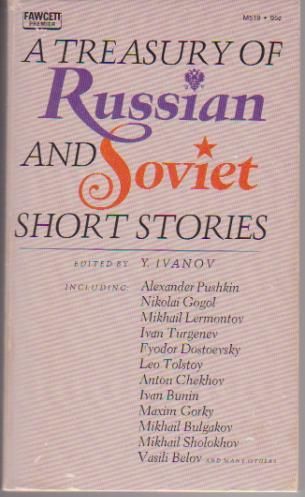Starting to wrestle with
Notes from Underground, which I don't recommend as anyone's first Dostoevsky...
Page references are to the Pevear-Volokhonsky translation. I distinguish between Dostoevsky (D), the real author of the book, and the Underground Man, his narrator (UGM). Interpretation of what the UGM says should take into account D’s note on the first page: he says that people like the UGM
must exist in a society like ours (i.e. in Russia, early 1864); also, as a man of 40 (page 5), D points out that the UGM came of age in Russia of the late 1840s. Page 6 would, furthermore, lead us to think that D sees the UGM not vaguely as “a Russian,” but as a dweller in Petersburg (the setting of
Crime and Punishment). The Pevear and Volokhonsky endnotes will help us with certain topical references. When we’ve read
Notes, we will be able to say something about the degree to which it seems just a period piece, and the degree to which it has a wider significance.
The UGM was a moderately successful bureaucrat, but resigned from the civil service once he inherited money in an amount sufficient for him to live on. Although the text makes it seem that the UGM is indulging in a monologue with a captive audience (and we might imagine this book as furnishing material for oral interpretation in a speech course), we soon learn that the UGM is writing things as they come to him. We might wonder if he is really writing for other people or as therapy for himself.
At first he seems just to want to talk about himself – how he doesn’t feel well, how he lives in a withdrawn manner (or does he?), etc. He notices what he is doing and says that there are plenty of other people who are uncomfortably conscious, self-aware.
His consciousness, however, isn’t, for example, that of a poet who experiences an exceptional sensitivity to impressions from nature (like Wordsworth). Rather, it seems he discovered years ago that when he indulged in certain “secret, mean, abnormal little pleasure
,” and went skulking home from them at night, the consciousness of shame and reaching a “wall” would be followed by a strange kind of pleasure (p. 8). He wants to explain, perhaps most of all to himself, what was going on here and why it was important.
On p. 13 he’s talking again about “walls” – the “laws of nature” and mathematics, things that one can’t struggle against successfully. He does not want to be “reconciled” to these things. We might ask: What does he long for in spite of the obstacles he’s encountered?



